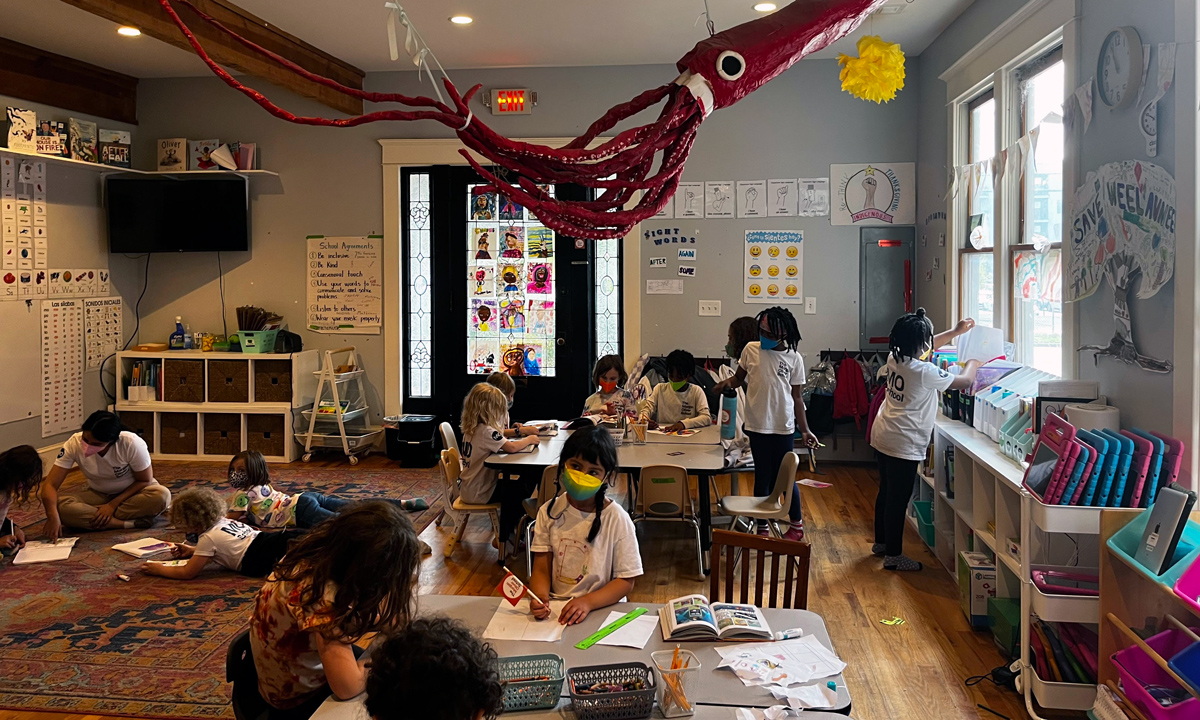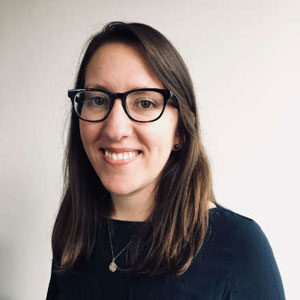Teachers Want to Innovate. Schools that Don’t Let Them Are Losing Out
Waite: Education entrepreneurs are taking their creativity and ingenuity to hybrid schools and microschools — and taking their students with them

Get stories like this delivered straight to your inbox. Sign up for The 74 Newsletter
At the end of April, I attended a conference in Atlanta featuring a small but heterogenous group of self-described education entrepreneurs. It was the second year of the National Hybrid Schools Conference, which launched in 2022 to connect people involved in less conventional styles of schooling that have exploded in interest since the pandemic. I was there because a thread of my current research is focused on innovations in education happening outside of traditional districts.
During a break after one session, I struck up a conversation with another attendee, a longtime educator with special ed expertise. She was a Black woman working in a rural public district two hours outside of Atlanta, and she told me how discouraged she felt by the way districts treat families of color with children who have special needs. She was frustrated about the constraints placed on her as a teacher — she couldn’t hug a student who was crying, for example, presumably because of rules around touch and safety.
So she is starting her own microschool. It will launch this fall. She’s working with a few families, all Black, who are eager for a different and more affirming experience for their young learners.
As I walked to my next session, I couldn’t get something out of my head: This teacher has a thousand burdens, and she isn’t responding by finding ways to work less. She’s taking on more work by starting her own school, an endeavor that one of the conference’s main-stage panelists described as “brutal” in the first year. In a sector where “overburdened” may be the most frequently used term to describe teachers, this educator and many of her peers (fellow teachers as well as parents) at the conference were not trying to step back. They were leaping forward, taking on new challenges.
I was deeply inspired by their energy. But I also walked away with a nagging sense of frustration, because the public education system is harnessing so little of that energy. Most of the entrepreneurs I met are assuming personal risk and putting incredible effort into starting microschools, hybrid homeschools and homeschooling cooperatives outside the governance and structures of public education.
I believe in public education, for all its faults. But I also think there are incredible resources in public school systems that are going to waste — including the intellectual capital of inventive educators and community members who want to pursue new ideas. Look no further than the teacher I met, feeling like the best way to serve her students was to leave — and to take some of them with her.
Public schools need to reckon with the opportunities they’re losing if there aren’t channels inside the system to encourage creativity, ingenuity and entrepreneurship from teachers, parents and even students.
There are some places where districts and charters are better channeling this energy. Consider:
The Madison, Wisconsin, school district used pandemic funding to launch 14 innovative projects dreamed up by staff or community members. One winner, the antiracist microschool ALL+IN, encourages students to learn outside the classroom and in the community, like in museums and libraries.
In North Carolina, the rural Edgecombe County district has used microschools and learning hubs for years to develop and test different school designs.
In Indiana, Innovation Network Schools support the growth of autonomous schools that operate inside Indianapolis Public Schools, but with flexibilities similar to those enjoyed by independent charters.
Across the country, teacher-powered schools are governed by teams of educators instead of a single principal.
Microschools like the Black Mothers Forum, Vita Schools of Innovation, Great Hearts Microschools, Arizona State University’s ASU Prep microschools and Gem Prep Learning Societies have launched as part of charter schools.
Nokomis Regional High School in Maine, which I profiled in a case study, has created a strong culture of teacher-led innovation with support from administrators.
To be honest, these glimmers are the outliers. In most school systems, teachers and parents are often expected to sit back and wait for instructions, not encouraged to generate and try new ideas. “Change” means nothing more than a new math curriculum. Charter school authorizers invite new ideas in theory, but then often stall their development with hundreds of pages of requirements and legalese.
I’m worried there’s a brain drain in public education that’s been accelerated by the pandemic and divisive politics. And I don’t just mean that superintendents are quitting. The parents and teachers opting out of public schools aren’t just leaving jobs vacant and reducing districts’ enrollment dollars. Some of them are walking away with good ideas for how schools can be more responsive to students’ varied needs. Some of them have especially good ideas for how to better meet the needs of underserved communities that are tired of being told to wait while someone else figures it out.
If public schools, charter authorizers and charter management organizations are willing to embrace creative solutions from teachers and the community, there are ways to do it: State and local leaders can encourage pods and microschools, partner with community organizations to create learning hubs, allow for autonomous district schools or enable parent-teacher compacts.
So, fellow believers in public education: If the cost of retaining education entrepreneurs is to give life to their ideas, what is there to lose?
Get stories like these delivered straight to your inbox. Sign up for The 74 Newsletter

;)
